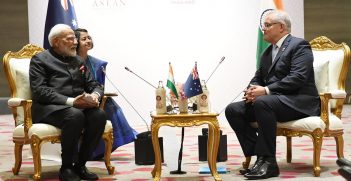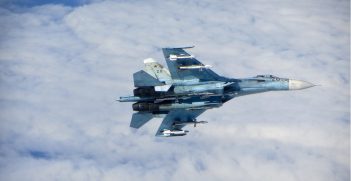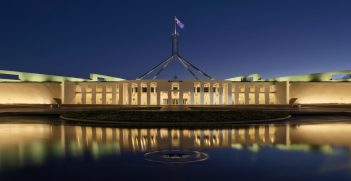Ukraine War: Russia’s Weaponisation of Food

Stopping Ukrainian grain exports once more is Vladimir Putin’s cynical attempt to stay relevant as a global player and to present himself as a saviour. Leaders in the Global South are beginning to despair.
The support for Vladimir Putin’s war against Ukraine seems to be faltering among African leaders. Public support by these leaders, following the visit by seven African heads of states, including President Cyril Ramaphosa of South Africa (which is also the only African BRICS partner) to both Kyiv and St Petersburg in June 2023, has been significantly muted since their return. The confirmed South African/Russian announcement that Putin would not attend the upcoming BRICS summit in South Africa in August for fear of being arrested as a war criminal is likely to further impact his diminishing standing on the continent. Russia’s tarnished standing in the African Union (AU) became even clearer when only 17 out of 47 AU countries were represented at the second Russia-Africa summit in St Petersburg on 27 to 28 July 2023.
Just a week earlier, on 19 July, Russia ended the UN brokered grain deal of July 2022 (Black Sea Grain Initiative – BSGI) guaranteeing safe passage for exports across the Black Sea. Russian forces subsequently bombed crucial grain storage facilities and loading infrastructure (some partly owned/operated by the UN) in Odessa. The defence ministry announced that it would target any grain cargo ship heading to Ukraine as “potential carriers of military cargo and party to the conflict.” Such a threat alone makes it near impossible for ships to operate as its marine cargo and war insurance will be affected if a safe passage can’t be ensured. A precondition for any commercial shipping is having maritime insurance valid even in times of war and open hostilities. The Lloyd’s of London provided such insurance following the announcement of the UN backed grain deal in July 2022 with the BSGI as an essential condition. Consequently, with the insurance potentially moot, Moscow’s actions and words amount to a de facto blockade.
The continuing military attacks against Ukrainian grain facilities and the implied threat of the potential use of force against civilian commercial shipping are illegal under international law. Yet, they also serve a strategic purpose: the signalling that Russia alone can decide whether Ukrainian grain will be exported and, consequently, whether people in Africa, Asia, and other parts of the Global South will face food insecurity or not. Given that Ukraine has been the world’s largest supplier of humanitarian food relief, with Ukrainian grain exports amounting to almost 65 percent of all exports for the developing world, any disruption by Russia could lead to acute hunger. Among the recipient states are some of the world’s poorest nations, including Afghanistan, Sudan, Somalia and Yemen.
What has Putin to gain from weaponising of food?
Russia’s cancellation of the UN brokered grain deal, the systematic targeting of grain export infrastructure, as well as the threatening of any ships sailing to Ukraine as military targets serves multiple strategic objectives. Russia wants to show that it is the regional power in charge, and that it has the final say on whether grain will leave Ukraine or not. Russia also makes it clear that it has the capability to virtually stop Ukrainian sea-based grain exports, and, with this leverage, that it can decide whether, when, and how much grain can be exported. Putin has returned to the status quo ante BSGI, when he stood accused of using food as a weapon and holding the world hostage in terms of food security; the very same situation which led to the conclusion of the BSGI in July 2022.
These policy positions by Putin have likely been employed to provide much needed diplomatic and international impact and standing. Unless NATO is willing to provide military protection to all shipping (and not just NATO member states’ vessels) en route to Ukraine, something which is unlikely given that there won’t be a UN Security Council mandate, Russia holds all the cards. NATO is not likely risk an escalation of the conflict on the basis of grain.
Russia’s unilateral withdrawal from the BSGI serves a couple of purposes: firstly, it puts pressure on the UN and the West to work towards a potential settlement of the Ukraine war, and may even work to ease Western sanctions against the country. Secondly, the withdrawal shows to the developing world/emerging economies represented in the UN General Assembly that Russia is the main player and that its support and consent must be considered on any major decision affecting the region. Putin reminded the African delegations present at his Russia-Africa summit that he would give free grain to selected African states with close links to Moscow, such as Burkina Faso, Central African Republic, Eritrea, Mali, Zimbabwe, reminding all of the AU of the advantages of having Russia as a friend.
Last is the Western European dimension, in that food insecurity might lead to increased migration and refugees into Europe. This prospect might create additional leverage for Russia as migration has become a contentious issue in Europe, to the extent that Russia (through its proxy Belarus) has been accused in the past of “weaponising” migration.
Whether Putin’s gamble will play out remains to be seen. What is already clear now that is that Moscow’s weaponisation of food has backfired and calls for a return to the BSGI have been many: from the UN, Africa and even China, Russia’s closest ally and strategic partner.
Sascha-Dominik (Dov) Bachmann is Professor in Law and Co-Convener National Security Hub (University of Canberra), University of Canberra, and a Research Fellow with the Security Institute for Governance and Leadership in Africa, Faculty of Military Science, Stellenbosch University.
This article is published under a Creative Commons License and may be republished with attribution.





